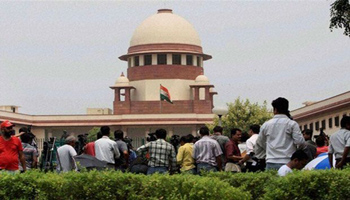A division bench of the supreme court headed by chief justice T S Thakur on Friday sought the opinion of the centre on whether district co-operative banks could be allowed to accept demonitized currency notes as deposits subject to conditions.
The bench was hearing a batch of petitions filed by district co-operative banks from Kerala, Maharashtra, Rajasthan, and others challenging the virtual freeze inflicted on the functioning of the banks by the centre following demonetization.
Asking attorney general Mukul Rohatgi on what basis the centre had put a freeze on the functioning of district co-op banks instead of imposing restrictions, the division bench wondered why the depositors were not allowed to withdraw money despite the centre fixing a weekly withdrawal limit.
The apex court framed nine questions for the consideration of the centre and directed the attorney general to get instructions from the government.
The division bench, also comprising justice A M Khanwilkar and D Y Chandrachud posted the petitions for further hearing on December 14.
The centre had put a virtual freeze on the functioning of district co-operative banks in the country arguing that they had not been following the RBI guidelines and were active laundering black money.
Attorney General Mukul Rohatgi submitted that there were serious apprehensions regarding the source of money that was deposited in these banks by the societies, which may have thousands of individuals who have not complied with KYC norms. Such banks, governed by the Nabard and not by the RBI, could be used for money laundering, he contended.
“We are not ready to give any concession to cooperative banks,” he maintained. Chidambaram countered him by claiming that 97% accounts were KYC compliant. Rohatgi said there were one lakh such societies and they might be looking for one opportunity to surreptitiously put their money back in the system.
“Digitilization will take some time,” Thakur told Rohatgi and asked him to revert by Wednesday on the suggestion by Chidambaram for a minimum non-discriminatory floor payment at all banks. The court will also examine whether it should stay all high court cases against the move on that day.
Rohatgi on his part wondered if the court has the power to sit in judicial review over economic or fiscal matters. He also said it was incorrect to say people had died due to the cash crunch. The petitioners said about 90 people died due to stress of standing in lines, being unable to get new notes or not being able to pay their medical bills.
